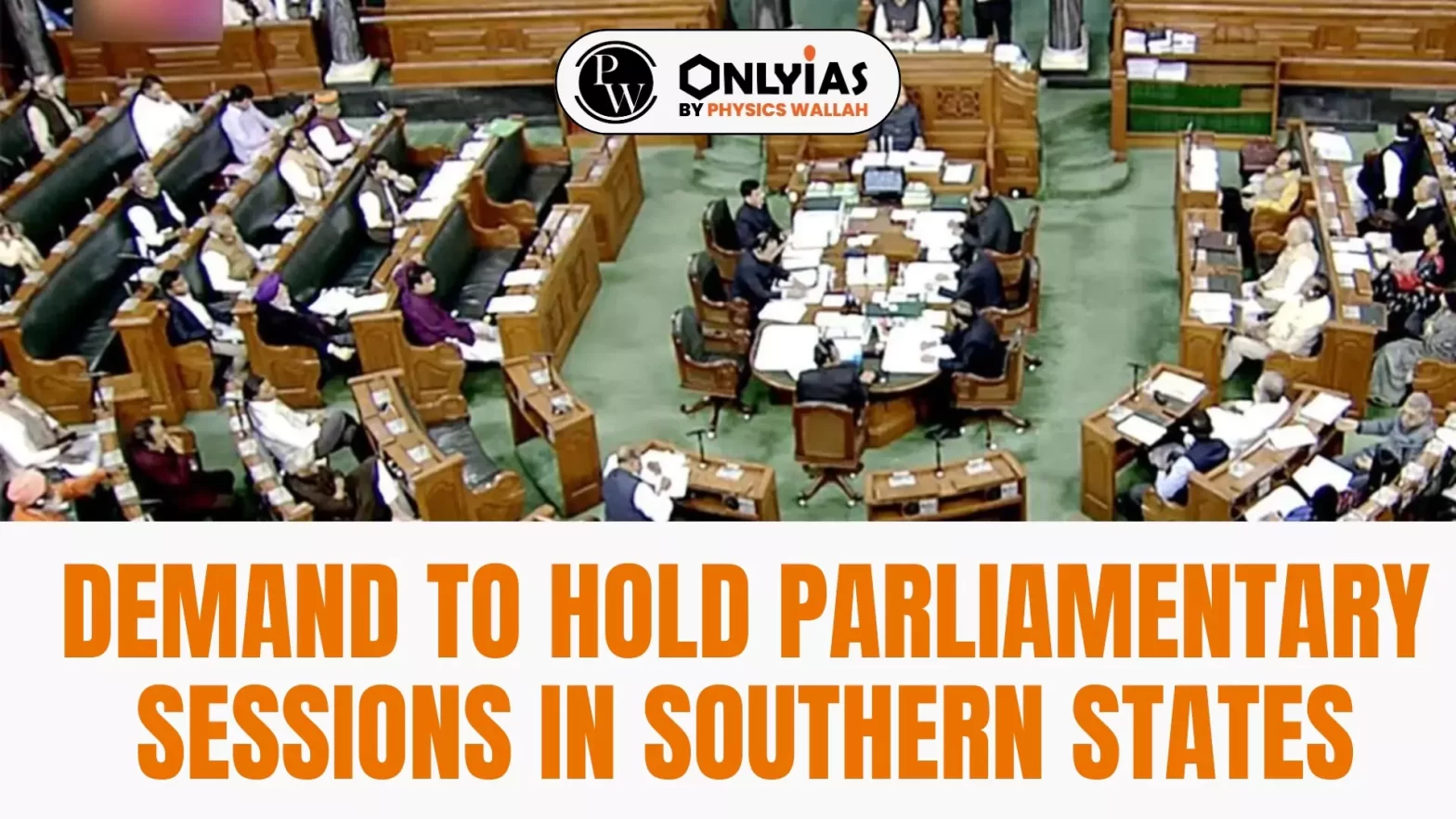Context:
This editorial is based on the news “66 years ago, an idea for a House session in South” which was published in the Indian Express. This article highlights the Demand to Hold Parliamentary Sessions in Southern States of the country after concerns raised by Southern Governments and members over fiscal distribution among states in the recent budgetary allocations.
Parliamentary Sessions For Southern States
- Origin of the Demand to Hold Parliamentary Sessions in Southern States: Sixty-six years earlier, an Independent Member of Parliament had an idea to bring both parts of the country together, to hold a session of Parliament in the southern part of the country.
- Role of Prakash Vir Shastri: In 1958, the voters of Gurgaon, then part of Punjab, elected an Independent candidate, Prakash Vir Shastri, to fill the vacancy caused by the death of independent India’s first education minister, Maulana Abul Kalam Azad.
- He gave a notice for discussion in Lok Sabha on the opinion for one session of Lok Sabha held in South India at Hyderabad or Bangalore every year.
- Core Argument: Such a move would help strengthen national integration.
- Discussion in Parliament: Other MPs had also given similar notices in the past, but Shastri’s notice was successful and picked for discussion on the floor of the House.
- Result of Discussion: The government opposed his proposal on practicality, leading to its rejection by Lok Sabha.
Atal Bihari Vajpayee’s Middle Path
- Atal Bihari Vajpayee suggested that the government keep an open mind on the issue and form a committee to examine the idea.
Second Attempt By Prakash Vir Shastri
- A Private Member Bill: Shastri raised the issue again in 1963 and then introduced a private member Bill on the same subject in 1968.
- Formation of Committee: The government agreed to constitute a committee of 18 MPs, with the mandate to “examine the feasibility and financial implications of the proposal to hold the session of Parliament annually in the South”.
- Members of the Committee: Shastri and other distinguished MPs like G S Dhillon, Rabi Ray and K Hanumanthaiya.
Southern State Governments Views
- The governments of Mysore and Kerala put together detailed proposals for the infrastructure required (two legislative chambers, housing for presiding officers, MPs, ministers, government and secretariat staff, etc.) and the money needed to construct it.
- Kerala offered free land, and Mysore offered to create space in its newly built Vidhan Soudha building to accommodate a parliamentary session.
- The central government had to bear the cost of developing and maintaining the infrastructure.
- Session without Question Hour: To ease staffing requirements, a purely legislative session, without Question Hour could be held. But, the central government opposed this idea as it would be considered a pale reflection of itself, lacking in teeth and leaving the opposition dissatisfied.
- Some states like Madhya Pradesh, Maharashtra, Orissa, Gujarat, Manipur, and Punjab opposed holding a Parliament session outside Delhi.
- Jammu and Kashmir stated that such a move would create pressure from other distant parts of the country to hold a session there.
Findings Of the Committee
- Not Feasible: Considering all factors, the committee concluded that holding the session in the South was not feasible.
- Option of Intersession Period Meetings: The committee suggested that parliamentary committees could hold their meetings during the intersession period in the South.
Conclusion
The idea of holding a parliament session in the South is rising again. Many are suggesting that during winter, when the weather in Delhi is much colder, the session should be held in the Southern part of the Country.
![]() 13 Feb 2024
13 Feb 2024
